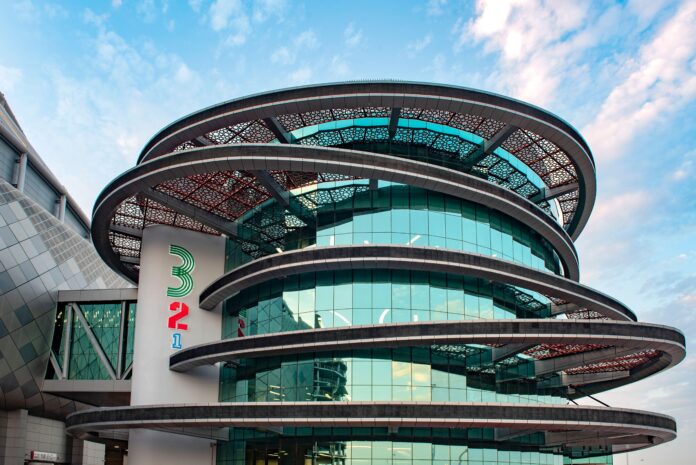Qatar is gearing up for the Fifa football world cup in November with a raft of cultural initiatives designed to boost the small oil-rich state’s soft power status. Crucially, more details have been revealed about the major museums in development including the Art Mill initiative, a vast new Modern and contemporary art venue planned for Doha. The venue, which will be houses in a former flour mill, is due to open in 2030 (the plan was first announced in 2015).
In a statement, Qatar Museums say that “the vision and the definition of the museum, [is] conceived by [the French art historian] Catherine Grenier”, the director of the Fondation Giacometti in Paris. In 2017, Grenier curated the exhibition Picasso-Giacometti at the Fire Station in Doha which brought together more than 120 works by the two artists.
A preview exhibition called Art Mill Museum 2030 is due to open at two locations, the Qatar Flour Mill Warehouse and Al Najada Heritage House #15, Doha (24 October-30 March 2023). The show will focus on “the architecture [of the Art Mill Museum] by the Chilean studio Elemental, led by the Pritzker Prize-winning architect Alejandro Aravena”. Officials add: “The museum will house an exceptional and completely international collection constituted over the last 40 years with multidisciplinary works of great diversity, dating from 1830 to the present.”
Meanwhile, Xavier Dectot, formerly director of the Louvre-Lens museum in northern France, was appointed director of another planned Qatar mega-museum, the Lusail Museum, late 2020. Dectot was appointed head of the department of art and design at the National Museum of Scotland in Edinburgh in 2016.
The Lusail museum, designed by the Swiss architects Herzog & de Meuron, will be “home to the world’s most extensive collection of Orientalist paintings, drawings, photography, sculptures, rare texts, and applied arts,” say officials. “The exhibition, anchored in Lusail, home of Sheikh Jassim bin Mohammed bin Thani, founder of Qatar, will explore moments of encounter and the vast networks across the Indian Ocean World which make connections possible.”
Qatar Museums also announced last year that more than 40 new and commissioned public works will go on show throughout Doha as part of a mass public art programme complementing the football events. These works will go on display “in a variety of public spaces including parks and shopping areas, educational and athletic facilities, Hamad International Airport and Q-Rail stations, as well as select stadiums that will host the World Cup Games”.

Striking geometry of the Museum of Islamic Art viewed from the southwest. Courtesy ofthe Museum of Islamic Art
A key museum is meanwhile getting an overhaul. The Museum of Islamic Art (MIA) in Doha, a landmark building designed by IM Pei, will be reconfigured with “new thematic interpretations”. An exhibition charting the cultural and political history of Baghdad also opens at MIA (26 October-25 February 2023) with objects on loan from 22 lenders including the Louvre in Paris and the Metropolitan Museum of Art in New York.
An exhibition programme across eight museums and galleries underpins the autumn cultural season with shows at Mathaf: Arab Museum of Modern Art, Doha, dedicated to the Qatari-US artist Sophia Al-Maria and Gaza-born Taysir Batniji (16 September-21 January). In a surprise move, Massimiliano Gioni, associate director and director of exhibitions at the New Museum in New York, and the fashion critic Alexander Fury will organise Forever Valentino at the M7 venue (October-April 2023) in homage to the Italian designer.
Qatar has ramped up its cultural offerings in the past two decades, embarking on a hugely ambitious museum development programme. In 2019, the National Museum of Qatar opened, designed by the French architect Jean Nouvel for an undisclosed sum. But despite the cultural offensive, Qatar has faced charges of neglect of migrant workers brought in to build the new football stadiums. The Qatar government says that it introduced labour reforms in 2017 and progress has subsequently been made regarding the treatment of such labourers.

























